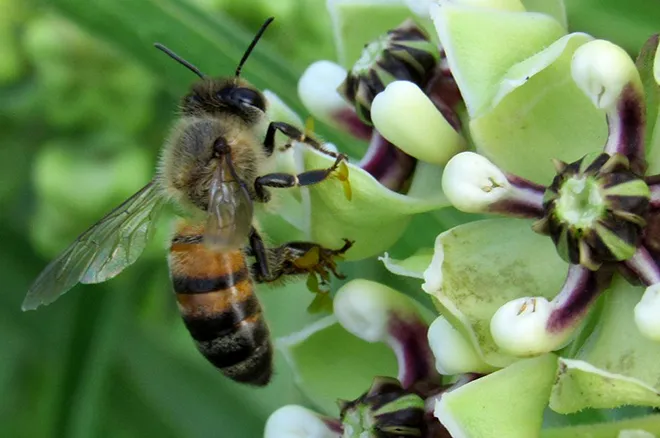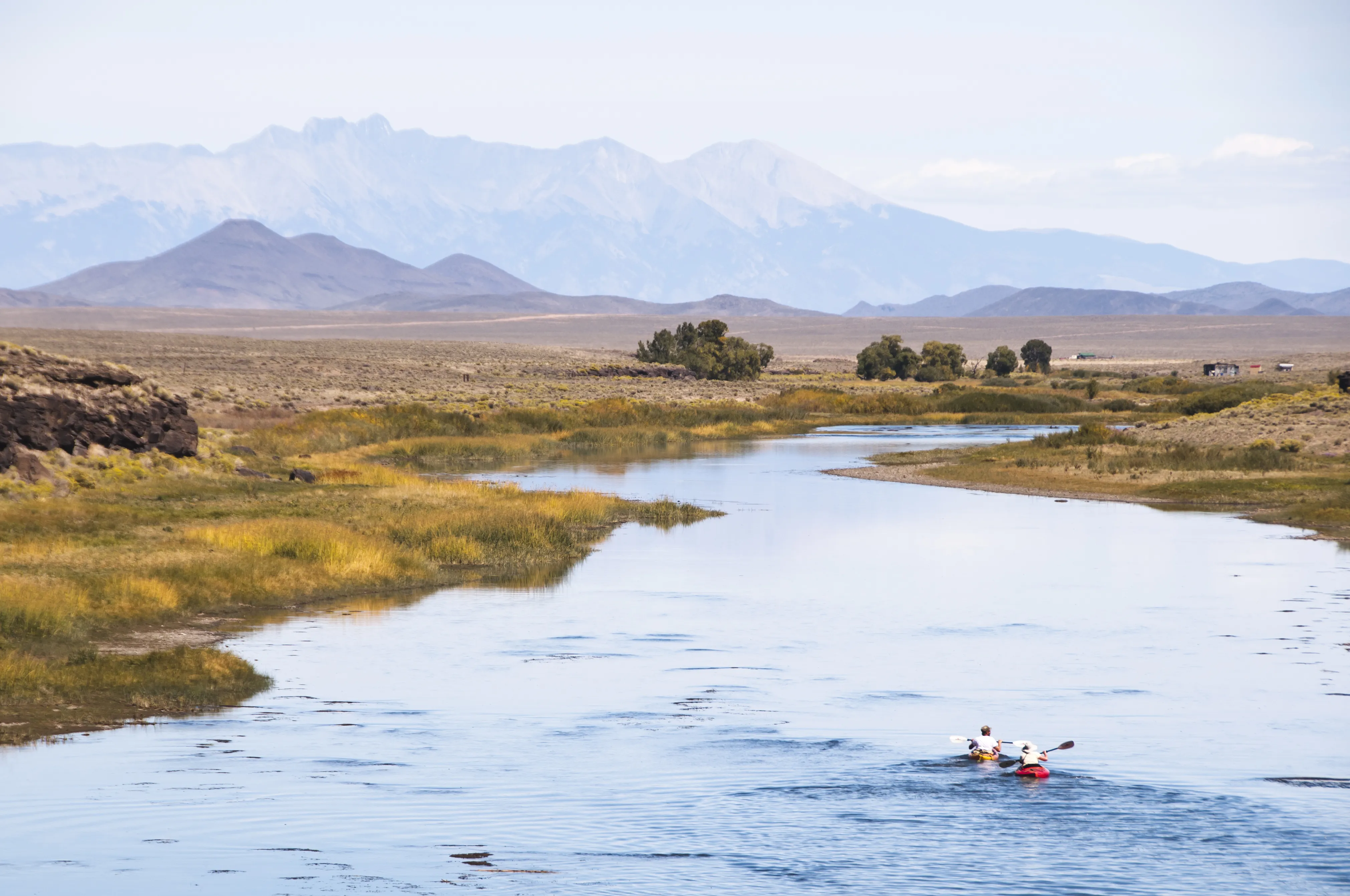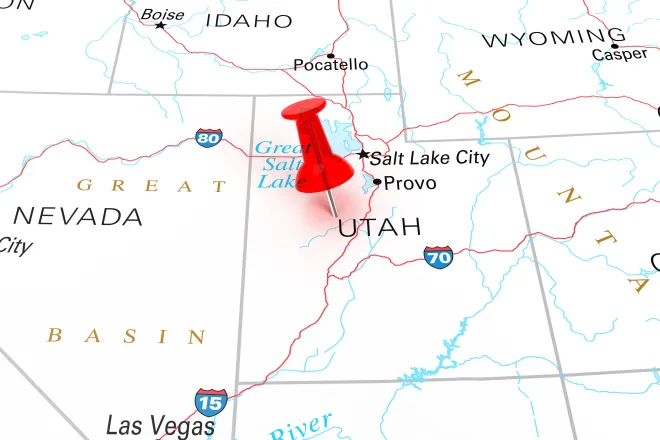
Daily Audio Newscast - September 25, 2025
© AlexLMX - iStock-823000260
Six minutes of news from around the nation.
U.S. Attorney scrambles to present case against James Comey; Report: IN utilities backsliding on clean energy transition; Diaper distribution program boosts MA families' financial security; Scientists discuss solutions at New York City Climate Week; 'Magical' monarch migration passing though IL.
TRANSCRIPT
The Public News Service daily newscast, September the 25th, 2025.
I'm Mike Clifford.
President Trump's handpicked federal prosecutor in the Eastern District of Virginia is scrambling to present a case against James Comey, the former FBI director, to a grand jury before a deadline early next week, according to officials familiar with the situation.
That's from the New York Times.
They report Lindsey Halligan, a former defense lawyer for Trump, who was hastily appointed after the president forced out her predecessor last week, is racing to draft a complaint under withering pressure from the White House.
The Times notes Trump has demanded the department go after one of his foremost enemies, even though career prosecutors determined there was insufficient evidence to indict Comey.
And if you're wondering why the rush, the statute of limitations kicks in next week.
Meantime, Indiana utilities are facing criticism over how they handle renewable energy commitments. get the details from our Joe Ulori.
A new Sierra Club report says several companies are backsliding on clean energy goals at the very time demand is skyrocketing from data centers.
Megan Anderson, senior campaign organizer for the Sierra Club says utilities risk leaving customers with higher bills and less reliable power.
It's more important than ever that our utilities are keeping their commitments to provide customers with renewable energy because we know that can do things like make sure that we have less volatile prices and that our power is more affordable.
Utilities argue fossil fuels remain necessary to ensure reliability, especially as Indiana continues to rely on coal and natural gas.
Supporters of coal say closing older plants too quickly could leave customers vulnerable to outages and price spikes.
Anderson warns Indiana's path forward should not depend on keeping aging coal facilities alive.
We are incredibly old, are incredibly polluting, and cost hundreds of millions of dollars to upkeep.
Just keeping coal open or just building gas is not going to mean that we have affordable or reliable power.
And a federal diaper distribution program in Massachusetts and Connecticut led to significant health and financial gains for families.
That's according to a new report.
More than three and a half million diapers, along with wipes and other needed supplies, were given to more than 3,000 families over the past two years.
Richard Sheward with Boston Medical Center's Children's Health Watch says employment rates among these parents rose by 10 percent while stress levels declined.
When parents aren't scrambling to buy diapers, they're able to redirect that money to the essentials that are needed like rent or medications or food.
He says incidents of severe diaper rash also decreased and caregivers reported improvements in their mental health.
Backers of the program are now hoping to make it permanent.
More than one third of Massachusetts families say they can't afford enough diapers for their children.
I'm Catherine Carley.
This is Public News Service.
As part of New York City Climate Week, scientists are examining an overlooked idea to fight climate change.
It's called solar geoengineering.
This involves reflecting about 1 percent of sunlight from the stratosphere back into space to ease some of the worst effects of global warming.
While research has been ongoing for several decades, scientists still don't fully understand and solar geoengineering's viability.
But Phil Duffy with Spark Climate Solutions says there's one common idea of how it would work.
The most commonly discussed approach would be to put small, very, very, very small reflected particles in the stratosphere.
And that could reflect just a little bit more sunlight back into space and have a significant cooling effect.
He notes large volcanic eruptions already put these particles in the stratosphere.
Currently about 30 percent of the sun's radiation reflected into space by clouds, sea ice, and other particles according to the World Meteorological Organization.
Scientists aren't calling for deployment of solar geoengineering, but rather for more research into it.
I'm Edwin J. Vieira.
Three states have enacted laws banning geoengineering research, while similar bills failed in 30 other states, including New York.
And in just under 100 days, Minnesota's new paid leave law takes effect.
Labor and business groups are getting the word out so employers and employees are prepared.
Starting January 1st, most workers can apply for up to 12 weeks of medical leave or 12 weeks of family leave.
It's managed by the state with a payroll tax evenly split between the employer and employee to cover partial wage replacements for time off.
Maureen Dunaway with the Minnesota Association of Professional Employees says like unemployment insurance, these new guarantees will serve as a bridge during during major life events.
An economy does better when the people that have to participate in the economy have the ability to keep it sustained.
And you know, that financial security reduces stress.
Organizations and law firms representing businesses are busy with tutorials about compliance and key deadlines.
I'm Mike Moen.
Finally, to Illinois, where wildlife experts call this a magical time of year.
Monarch butterflies have begun their migration from their northern breeding grounds to central Mexico for the winter with peak sightings in Illinois happening in September.
The journey starts in Canada and takes about two and a half months.
The arrival of the monarchs coincides with Dia de los Muertos, a significant Mexican cultural holiday honoring loved ones who have passed.
Alan Lawrence, curator of entomology at the Peggy Notabart Nature Museum in Chicago says some view monarchs as a symbol of spirits passing through to visit.
And it's just an incredible phenomenon that connects three countries across North America together and the species survival really depends on all of us and it helps remind us of our own mortality, where we came from and who we have to honor.
This is Mike Clifford for Public News Service member and listener supported.
Find our trust indicators at publicnewsservice.org.
















